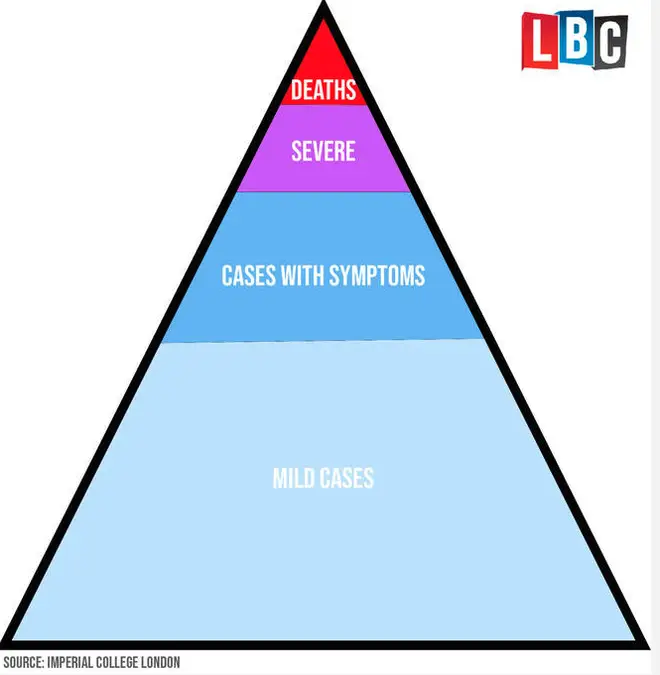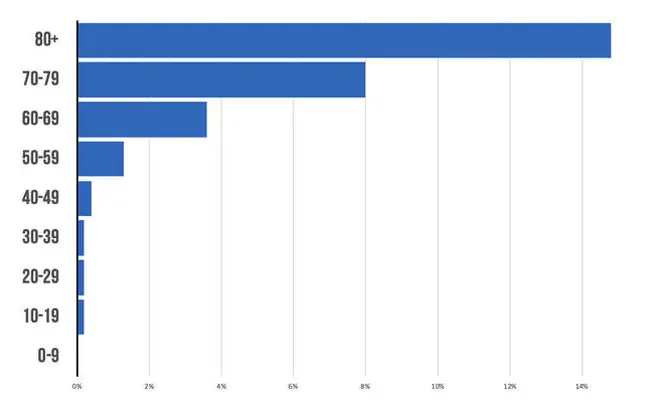
Tonight with Andrew Marr 6pm - 7pm
4 March 2020, 17:18

Who is most at risk of the coronavirus? And what is the fatality rate? Scientists believe that around 1% of people who catch coronavirus have died.
The coronavirus covid-19 virus is spreading around the world, with the UK reporting its most cases in a single day on Sunday with 13. China put entire cities into lockdown, while Italy cancelled sporting events in the north of the country.
Boris Johnson hosted a COBRA meeting on Monday morning to establish the government's plan for if the virus spreads across the UK.
So how many people have died? What is the death rate? And who is most at risk? We look at the stats below.
Read more: How to stop the spread of coronavirus
There is increasing concern about the virus across the world. However, it's important to note that the majority of the cases are mild and many people may fully recover without even knowing they had it.
Indeed, Health Secretary Matt Hancock said on Sunday that the UK government's "very best assessment" was that the mortality rate was "2% or, likely, lower".

This is a difficult question to answer, because the true number of people getting the virus is difficult to judge.
The majority of people who come down with coronavirus may not even show any significant symptoms and may not even contact the authorities.
The best estimate of the mortality rate for the virus is nine deaths per 1,000 victims - or just under 1%.

The majority of people who contract coronavirus make a full recovery. However, the elderly and infirm are most at risk from the virus.
Interestingly, children don't seem to show symptoms from Covid-19 and there are no known cases of children under 10 being ill with the virus. However, they could spread it to adults, which could make them ill.
According to the latest data from the China Centre for Disease Control, he mortality rate at different ages is:
Age 10-50: 0.3%
Age 51-60: 1.3%
Age 61-70: 3.6%
Age 71-80: 8.0%
Age 81-90: 14.8%
The risk climbs with older people because they often have other diseases or conditions which worsen coronavirus.
No one has died in the UK from coronavirus as of Monday 2nd March.
One British national died after being on the Diamond Princess cruise ship in Japan. He died while in quarantine in Yokohama.
Worldwide, just over 3,000 people have died from the virus, the majority of whom were in Wuhan and Hubai province in China.
People need to reinvoke the slogan "Catch it, bin it, kill it, wash your hands". That is the simple answer because it's a respiratory illness.
You should treat it in the same way you treat a cold: use alcohol-based anti-bacterial soaps and sprays, avoid touching their eyes, nose and mouth and avoid contact with people who are infected.
Professor Oxford says the old-fashioned way of stopping viruses is the best defence here: "The only way to stop it is physical cleaning and social distance - keeping away from people. Once they are close together in taxis or small rooms, then there may be a problem."
The symptoms are similar to a common cold, including:
- a runny nose
- headache
- cough
- fever
- shortness of breath
- chills
- body aches
In most cases, you won't know whether you have a Coronavirus or a different cold-causing virus, such as rhinovirus.
But if a Coronavirus infection spreads to the lower respiratory tract, such as your lungs, it can cause pneumonia, especially in older people.